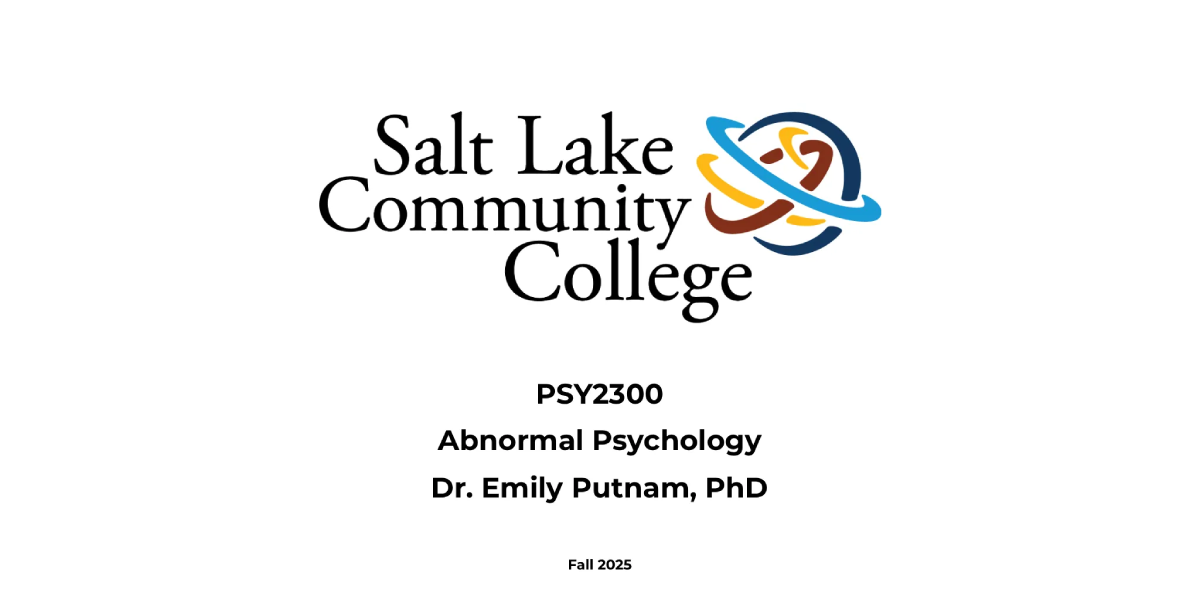Abnormal Psychology (PSY2300)

Abnormal Psychology (PSY2300)
📝 Course Description
An introduction to the psychological science of mental disorders including problems of emotion, mood, mind, schizophrenia and personality disorders. Diagnosis and treatment will also be considered.
Welcome to Abnormal Psychology! We get to focus on various ways things go awry in psychological development. Abnormal Psychology is a highly complex and fascinating field of psychology. You will be introduced to various approaches of studying abnormal behavior, with emphasis placed on symptom classification, etiology, and current treatment approaches to a variety of psychological disorders. While you will not be licensed to diagnose or treat anyone following this course, you will become familiar with recognizing symptom clusters and possible treatment approaches. Some of the mental health disorders we will review include mood disorders, anxiety, trauma and obsessive compulsive disorders, schizophrenia spectrum disorders, personality disorders along with a variety of other disorders. Unfortunately, due to limited time, we will not be able to cover every disorder or any particular disorder as much as you may wish, but I invite you to come discuss these types of topics with me outside of class. We will also focus on topics such as clinical assessment, diagnosis, theories of abnormality, as well as some legal and ethical issues in mental health services. We will also consider historical, cultural and social perspectives in understanding and responding to abnormal behavior along with current issues in mental health. Besides our textbook, we will also become familiar with and discuss the current edition of the Diagnostic & Statistical Manual of Mental Disorders, 5th edition, text revision (DSM-5-TR).
🎯 Expected Outcomes
- Compare and contrast various theoretical constructs regarding what constitutes abnormal behavior and how these constructs have shifted throughout history and across cultures.
- Describe the clinical presentation of a variety of disorders in the current edition of the Diagnostic and Statistical Manual and be able to differentiate between common disorders, including mood, anxiety, and psychotic disorders.
- Evaluate the current state of psychological diagnosis and treatment of mental health disorders, including legal and ethical considerations and the advantages and limitations of the current Diagnostic and Statistical Manual.
- Describe the methods involved in clinical diagnosis and assessment in treatment of various disorders and psychological research.
- Explain the multi-dimensional approach to understanding of abnormality.
- Synthesize symptomatology, assessment and treatment for a range of psychological disorders.
- Identify and examine local community health agencies and resources
📝 Course Syllabus
Click Here to download a full copy of this course’s syllabus.